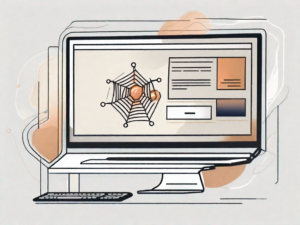The 10 Do(s) and Don’t(s) of Outstanding Customer Service.
Is it just me, or is customer service really bad all over the place? It’s bad in retail shops, on the phone, through the mail, on the Web,…
But you don’t have to be part of the problem! Here are some tips and real-life examples to help you improve your relationships with customers through outstanding service. Amazingly, as we’ll see, it all comes down to what your mother told you all along.
Key Takeaways
- Keep promises to customers and avoid making things overly complicated for them. A broken promise or a complex process can lead to customer frustration and potential loss of business.
- Ensure your automated systems are user-friendly and fair. Customers should not struggle with your systems or feel treated unfairly by your business practices.
- Promptly respond to all customer communications and make necessary information easily accessible. Customers appreciate quick, helpful responses and readily available information.
- Cultivate an environment of personal responsibility towards customers among your employees. Also, occasionally make an extravagant effort to serve a customer, as this can leave a lasting impression and foster customer loyalty.
Don’t
- Ever break your promises.
If you say, “I will email you back with that information today,” or “We will ship that out to you within 24 hours,” then DO IT. Make a promise once to a customer and then break it, and they will think, “Oh, too bad, this business has poor customer service just like every other business…” Continually breaking your promises to customers will earn your business a reputation as flaky and unreliable-and, guess what? you will lose your customers. If you can’t keep a promise, then don’t make it; if you do make a promise, then also make every possible effort to keep it. Period. - Make things overly complicated for your customer.
For example, if your web store forces potential customers to email you for prices; or they can’t find your contact information (email, phone, fax, etc.) easily on your website; or they have to talk to 10 people in 6 departments to get the help they need; then you are making things too hard for your customers and they will leave you. On a website where I regularly purchase software, I once needed technical help with a product. Going to the home page, I noticed a big animated graphic that said, “Click to leave a message”–so I used it to send an email that I hoped would get to the support staff. Of course, I got no response at all until a couple of days later when, still frustrated, I spent time to seek out the actual support email address on the website (which was several layers down). Don’t frustrate your customers! Whatever they want and need from you, make it painfully easy and obvious for them to get it. - Let your automated systems make using your website or business difficult for your customers.
There was the one site where it took me about seven manual tries at unsubscribing, then repeatedly writing to the webmaster, just to get off their email newsletter list…Needless to say, I won’t be re-subscribing to that newsletter, although their site is very useful! If you’re going to automate, do it right, so that customers really CAN help themselves. Otherwise, you’re just going to make them angry and drive them away. - Forget that your customers have a strong sense of fair play.
You need to make sure that you always treat them fairly, first come-first served; fair pricing and shipping charges; fair policies-because if you don’t treat them fairly, they will find out about it and leave you. For example, a friend of mine ordered something from an online shopping site that was listed as “in stock.” A couple of months later, he received an email from them saying that the item was actually out of stock when he ordered it and that they were, once again, out of stock. The kicker is, the site had the item in stock several times between when my friend ordered it and when they notified him-but because when he ordered it was out of stock, they never sent the order! However, other people obviously ordered and received the item in the same period of time that he was waiting for it. Then when he called them, they said, in essence, “Sorry, we can’t help you.” My friend will never order anything from that site again-they violated basic rules of fairness in dealing with him. Don’t let this kind of stuff drive your customers away; if there are flaws in your system that have the potential to cause unfairness, start fixing them now.
- Forget to say “thank you.”
A web developer that I know has a system for working with clients in which he says “thank you” (in letters, cards, lunches, and flowers) no less than seven times over the course of his relationship with the client-from the first contact to the maintenance contract. He’s very successful doing this. Make it a point to say “thank you” at every opportunity-your customers will feel like you really appreciate and value them.
Do
- Answer your communications-emails and voice messages-promptly.
I hate to have to say this, because it’s so darn basic, but apparently 90% of businesses still don’t get the first rule of good customer service. For example, I have an account with a top-rated online bank. After setting up my account with them, I needed some information-just a couple of numbers-to get started on setting up a merchant account. Now, I KNOW that my bank WANTS me to use their online systems to get help, so I sent an email request to customer service. And then I waited. And then I sent another email request. And waited some more. After waiting for five days, I called their customer service department and got the information I needed within 15 minutes. When I finally did get an email back from customer service a few days later, the response was completely unrelated to what I had asked and was totally unhelpful. So, here it is again: ALWAYS answer your email, voice, and other messages AS QUICKLY as you can. Even if it’s just to say, “I will look into it and get back to you within 3 business days,” that’s a million times better than most businesses are doing. (Note: no, using an autoresponder does not count as answering the message. Sorry.) - Make the information that your customers want easily available to them.
Once when I wanted to order 4 copies of a book, I shopped around the major Internet booksellers. At one of the booksellers, it was impossible for me to tell how many copies of the book were in stock-and even after I ordered the 4 copies successfully, I got a message back from the company later that my books were NOT in stock. Going to their major competitor, I found that there I could tell whether the books were in stock, check the status of my order, and even cancel it myself if I wanted to. When I shop for books online now, I will be sticking with bookseller #2, because the quality and comprehensiveness of the information I could access on their site was much better.
- Treat every customer like a completely precious individual. Relate to him or her as if they were the only person in the world, while you’re on the phone, in chat, or writing an email to them. Customers love personal attention, so hang on their every word and don’t let yourself get interrupted. Remember that your customers are absolutely the lifeblood of your business, and treat them accordingly. No, I’m not suggesting that you form romantic attachments with your customers! but they will sense whether you believe they are valuable. So you must believe that they are valuable and then put that belief into action.
- Cultivate an environment in your business where each employee takes personal responsibility for your customers.
When I wanted to get DSL for my home office, what I thought would be a fairly simple transaction (I order DSL, I pay for DSL, you install DSL, we’re all happy) became a 3-month long headache. I did finally figure out which department of the DSL company I needed to call to check up on the status of my order; however, every time I called or emailed that department, I spoke to a different person and had to explain my whole situation over again. All these people were very nice, but ultimately totally unhelpful. What I needed was for one of them to say, “I understand your need, we dropped the ball, and I am personally going to make sure that this happens for you as soon as possible.” You and your staff need to adopt an attitude of personal responsibility for each customer; your customers will keep coming back if they know that they can talk to Bob, or Susan, or whoever just once and get their problem fixed.
- Every so often, make an outrageous, extravagant effort to serve a customer.
At StrangePegs (2022 Update: StrangePegs is no longer running), their web store sold out of a hot collectible item within a few hours of a news announcement on a related website. However, a potential customer then wrote to StrangePegs (from an email link easily located on every page of the site) to ask whether any more of this item was available. The business owner, Andrew, replied promptly that there were no more for sale but that he was trying to get some. But the story doesn’t end there-Andrew hunted through online auctions for weeks, trying to find more of this collectible item. When he finally found one, he wrote to the potential customer to ask whether the price being asked on auction was OK; then purchased the item and arranged for it to be shipped directly to the customer; and didn’t charge the customer a single cent beyond the original auction price plus shipping. StrangePegs actually lost money here-hours went into finding the item and arranging the deal! but the customer was completely impressed with this level of service. You should make an extravagant customer service effort soon. Do it at a financial loss, even. Maybe even put it on your schedule to find some extraordinary customer service activity to do each month (for a different customer each time). That customer will be yours forever, and might even tell his or her friends about you.
When you consider the essentials of outstanding customer service, it really just comes down to doing what your mom always told you: keep your word, play nice, be fair, say “thank you,” answer me when I talk to you, and have a little respect. Do these things, and you might not even have to clean your room or comb your hair-although those probably wouldn’t hurt! So go ahead, make your mom proud and show us some great customer service. Your customers will appreciate it, too.
Frequently Asked Questions (FAQs) about Outstanding Customer Service
What are some key elements of outstanding customer service that are often overlooked?
One key element often overlooked is empathy. Empathy allows customer service representatives to understand and share the feelings of the customer, which can lead to more effective problem-solving. Another overlooked element is proactive service, which involves anticipating customer needs and addressing them before they become problems. This can significantly enhance customer satisfaction and loyalty.
How can I improve my company’s customer service?
Improving customer service involves several steps. First, ensure your team is well-trained and knowledgeable about your products or services. Second, implement a reliable system for tracking and responding to customer inquiries and complaints. Third, regularly solicit customer feedback and use it to make improvements. Lastly, foster a company culture that values customer satisfaction.
What are some common mistakes in customer service?
Common mistakes include not listening to the customer, failing to resolve issues promptly, and not following up after a problem has been resolved. These mistakes can lead to customer dissatisfaction and damage your company’s reputation.
How can I handle difficult customers?
Handling difficult customers requires patience, empathy, and effective communication skills. Listen to the customer’s concerns, acknowledge their feelings, and work towards a solution that satisfies both parties. If necessary, don’t hesitate to apologize and offer compensation for any inconvenience caused.
What role does technology play in customer service?
Technology plays a crucial role in modern customer service. It can be used to streamline processes, track customer interactions, and provide faster, more efficient service. Examples include customer relationship management (CRM) systems, live chat software, and social media platforms.
How can I measure the effectiveness of my customer service?
There are several metrics you can use to measure customer service effectiveness, including customer satisfaction scores (CSAT), Net Promoter Score (NPS), and customer effort score (CES). Regular customer feedback surveys can also provide valuable insights.
What is the importance of personalization in customer service?
Personalization in customer service can significantly enhance customer satisfaction. It involves tailoring your service to meet the individual needs and preferences of each customer. This can be achieved through personalized communication, product recommendations, and customer experiences.
How can I motivate my customer service team?
Motivating your customer service team can be achieved through regular training and development opportunities, recognition and rewards for good performance, and fostering a positive, supportive work environment. It’s also important to provide them with the tools and resources they need to do their job effectively.
What are some effective customer service strategies?
Effective customer service strategies include providing multichannel support, offering self-service options, personalizing customer interactions, and focusing on customer retention as much as acquisition. It’s also crucial to regularly review and update your strategies based on customer feedback and changing market trends.
How can I ensure consistency in my customer service?
Ensuring consistency in customer service involves setting clear standards and expectations, providing regular training and feedback to your team, and using technology to streamline processes and track performance. Consistency helps to build trust and loyalty among your customers.
Sarah Leon has worked as web developer for a small-business consultancy firm and now expresses her passion for helping beginning web entrepreneurs through her website, InformationSavant.com.





